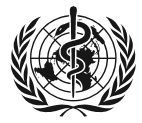


![]()
[This blog was co-authored by Eric A. Friedman and Lawrence O. Gostin, and was first posted with as a Health Affairs blog. It is connected to a related Health Affairs publication, Global Health: A Pivotal Moment Of Opportunity And Peril.]
In the current issue of Health Affairs, we explore a pivotal moment of opportunity and peril in global health, while identifying the leadership challenges of “the global health trio”—the World Health Organization, the United Nations, and the World Bank. Each of the challenges we pose share a common thread: poor and other marginalized populations are most vulnerable to current and emerging health risks. Maternal and child mortality, infectious diseases, non-communicable diseases, health harms from climate change and mass migration – all disproportionately affect those who are poor and less educated, indigenous people and immigrants, and others who experience social, economic, and political exclusion. Even antimicrobial resistance, in the United States and Europe primarily associated with hospital-acquired infections, mainly affects people in lower-income countries, and involve such diseases as AIDS, tuberculosis, and malaria, which are concentrated among poorer and otherwise marginalized populations.
These vulnerabilities cannot be resolved through technical solutions alone. Even if the UN Sustainable Development Goals are largely realized, poor indigenous women, sexual minorities, and persons with disabilities will not fully access health services if they face discrimination. Moreover, the types of solutions needed – good housing for all, health care that is as good for the poor as it is for the rich, effective enforcement of environmental regulations whether a poor black community or wealthy white suburban one is at risk – will not be forthcoming if political leaders do not look upon the homeless transgender woman of color as no less their constituent than the wealthy businessperson. Gaping health disparities exist not because the solutions are unknown, but because closing them is not a priority. Marginalized populations are vulnerable not only because the needed policies are not in place and being implemented, but also because the needed power dynamics are not in place.
The potential of international law
The scale of problem calls for using all available tools, including law. Public health law has contributed to immense health improvements, from mandatory vaccinations and road traffic safety to tobacco taxes and smoking bans. The global nature of the causes of health disparities, such as climate change and vast differences among countries in financial capacity, points to the importance of international law. The solutions are also international, applying to all countries, whether to eliminate discrimination, ensure financing, or develop mechanisms that allow people to meaningfully participate in developing the policies that affect their health.
As the Framework Convention on Tobacco Control demonstrates, the norms that a treaty establishes on health-promoting policies and globally shared expectations may be transformative. Further, treaties stand to increase accountability through courts and other mechanisms. As binding law, they can more effectively protect health from harm caused by other international legal regimes, such as trade and intellectual property.
The Framework Convention on Global Health
Accordingly, as the election for the next WHO Director-General got underway last year, we joined the Director-General of South Africa’s National Department of Health, a former Director of PAHO, civil society leaders such as the Vice Chairperson of BRAC International, and others in calling for the next WHO Director-General to make the right to health their foremost priority, with a Framework Convention on Global Health as the “centerpiece.”
The FCGH would be a global treaty grounded in the right to health and aimed at national and global health equity. It would respond to four major problems of global governance for health. First is the lack of accountability, from communities where health resources are misappropriated and people have no mechanisms to influence their local health services to governments that fail to follow through on international commitments, from funding to human rights. The FCGH could set specific standards on participation and accountability at all levels, foster peer review and independent monitoring, and develop a global health accountability framework.
Second, marginalization and discrimination persist, with enormous effects on people’s health. In the United States, for example, the life expectancy of transgender women of color is 35 years, less than half the national average. The FCGH could catalyze nuanced national health equity strategies, disaggregated data, and equitable health financing.
Third, inadequate financing precludes strong health systems at every level, from health systems with clinics that have too few health workers and drug stock-outs to underfunded global health functions, such as global health security and research and development. The West African Ebola epidemic underscored the human consequences of weak health systems, a paucity of domestic and international financing, and the absence of accountability. The FCGH could establish the first global norms on national and international health financing responsibilities and promote innovative financing.
And fourth, lack of policy coherence means that intellectual property and trade, environmental regulations, and even the criminal justice system may undermine the right to health. The FCGH could establish the primacy of the right to health in other legal regimes, protect against undermining the right to health in international agreements, and promote right to health impact assessments so that they become as standard as environmental impact statements.
Leadership of the global health trio
The FCGH thus has significant implications for policies in sectors outside of health, builds upon human rights treaties developed through the United Nations, and is closely tied to promises embraced by the UN Sustainable Development Goals, such as universal health coverage and universal access to nutrition food, sanitation, and clean water, along with participation and accountability. Indeed, among the global health trio, it was UN Secretary-General Ban Ki-moon who has displayed leadership on the FCGH, “encourage[ing] the international community to consider and recognize the value of a comprehensive framework convention on global health.”
WHO initiative will be critical, as the Organization is the world’s “directing and co-ordinating authority on international health.” The next Director-General should pick up where Ban Ki-moon left off by initiating a formal process to consider the FCGH. It could well be that the FCGH follows the Framework Convention on Tobacco Control as a WHO convention developed under WHO’s constitutional treaty-making authority.
Yet the FCGH could ultimately be established through the United Nations, given the treaty’s connections to UN human rights treaties and non-health sectors. Indeed, one of the goals of the FCGH is to enable non-health sectors to take greater responsibility for the health effects of their policies and programs.
We have emphasized the importance of close cooperation among the global health leaders. One could envision a unique collaboration between WHO and the United Nations in developing and implementing the treaty. The governing bodies of both organizations could support developing the treaty, with WHO formally involved even if the treaty is established through the United Nations. And the UN Office of the High Commissioner for Human Rights and other UN bodies would be engaged if the treaty is developed through WHO. If the UN General Assembly adopts the treaty, the FCGH might still establish a secretariat at WHO, as well as oversight by both UN human rights machinery and the World Health Assembly. The treaty could borrow from one of the most innovative UN treaties, the Paris Agreement on climate change, with its nationally determined, iteratively scaled up commitments towards a common goal and binding transparency and international accountability mechanisms.
Meanwhile, World Bank engagement will be important as well, including by recommending ways that the FCGH could incorporate innovative financing and continuing to make the investment case for health. Further, the World Bank has privileged access to finance ministers. Its grants and loans could incorporate strategies that the FCGH would support even before the treaty itself is adopted, such as right to health impact assessments and national health equity strategies. And with Jim Kim, a public health luminary, as its president, the Bank could be a forceful advocate for the FCGH, and help build political support.
As important as the leadership of WHO, the United Nations, and the World Bank is to the FCGH, the most important drivers of the treaty will not sit in comfortable offices in Geneva, New York, and Washington, but rather are those who live in run-down slums, perhaps with no home at all, perhaps far from any health center, in a constant state of health insecurity. Here, the Convention on the Rights of Persons with Disabilities stands as a singularly important precedent, with the pivotal role of NGOs and people living with disabilities in its development, its commitment to transformative equality, and its potential to empower civil society and the people most affected by the rights that the treaty aims to secure.
The disabilities convention gave people with physical or mental disabilities – one of the world’s historically, and even still in many places today, most excluded populations – a powerful new tool to assert their rights. It is the ambition of the FCGH to similarly help catalyze more just power dynamics, and establish national and global health systems that do not cater primarily to those who hold the most power in society, but are truly the people-centered systems to which the global health trio and states have affirmed their support.



